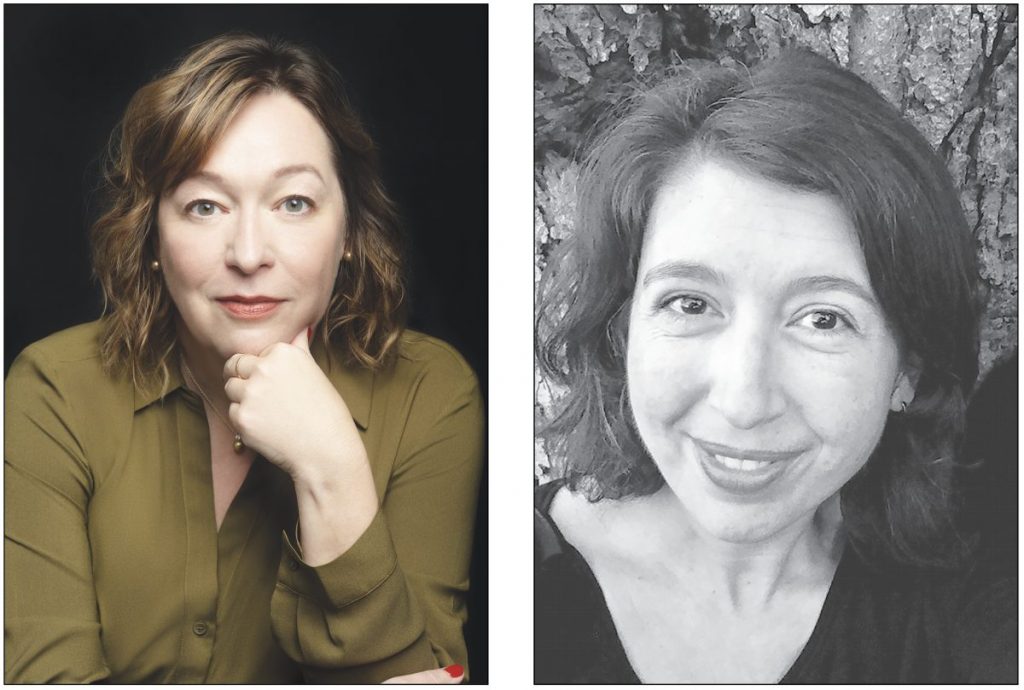
Kaitlyn Finchler
Staff writer
Ghosts of the past and of loved ones will be a recurring theme for Week Five at the Chautauqua Writers’ Center. Poet-in-residence Jennifer Grotz and prose writer-in-residence Randon Billings Noble both write to honor pieces and people around them, in different mediums.
Grotz and Noble will read from their work at 3:30 p.m. Sunday in the Hall of Philosophy.
“I will be reading from my new book, Still Falling,” Grotz said. “I’m going to try to choose poems that stand well on their own, but also maybe complement each other to show a little bit about my voice as a poet (and) the project of that book.”
While usually keeping a “setlist” of what she has previously read, Grotz said she doesn’t typically decide what to read until she’s “on the ground at a place,” to decide the mood.
“(Still Falling), I mostly wrote during the pandemic,” Grotz said. “It’s a sad book because there are a lot of elegies in it. I know that I’m not the only person who had losses in recent years — and certainly in the pandemic. It’s very common (and) we all have our stories.”
The title poem of the book, Still Falling, is based on a Caravaggio painting, which is an elegy to her friend Paul, a poet who died of cancer at 40.
Noble will read from her book Be With Me Always, a collection of essays, as well as some of her more traditional work.
When choosing what to read, Noble said she focuses on time — something she said most writers don’t do, but should.
“An hour-long reading is very different from a half-hour reading, which is different than reading in a group,” Noble said. “Time constraints are the first consideration but, more importantly than that, I’d like to read from a mix of work to show what an essay can be.”
Noble said essays have a “bad reputation” due to the formulaic teaching of them in K-12 schools and higher education.
“If I read something that’s a little bit deeper or darker, I like to read something that’s a little bit lighter,” Noble said, “even a little bit funny to sort of balance out the mood in a reading.”
Both writers will host workshops throughout the week, focusing on different subjects. Grotz will focus on “Looking at Poems of Looking,” while Noble will teach “The Shape of Things to Come: How Playing with Form Can Invigorate Creative Nonfiction Work.”
“My class is going to be on looking,” Grotz said. “One of the topics of the book is using poems as a way to have conversations with either the dead or with the past, with traditions or painting, even.”
While Grotz “weaves” in lines from other poet’s poems on similar topics, Noble said essays are “a different cast of mind.”
“Sometimes I compare it to people being naturally better at algebra than geometry, or vice versa,” Noble said. “Whenever I sat down to write as a younger writer, I was trying to figure something out. I didn’t really want to make something up.”
Not a fan of “a fictional world for people to get lost in,” Noble said she always had questions about how a “small corner of the world works,” and Grotz said she shares the same sentiment.
“I get my inspiration from the world,” Grotz said, “from looking at the world and from interacting with people.”




